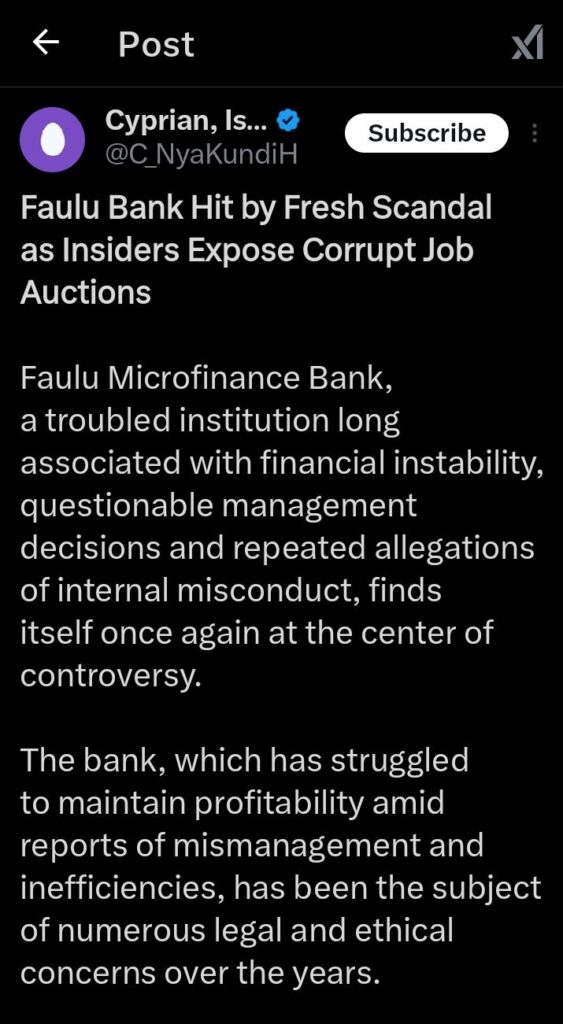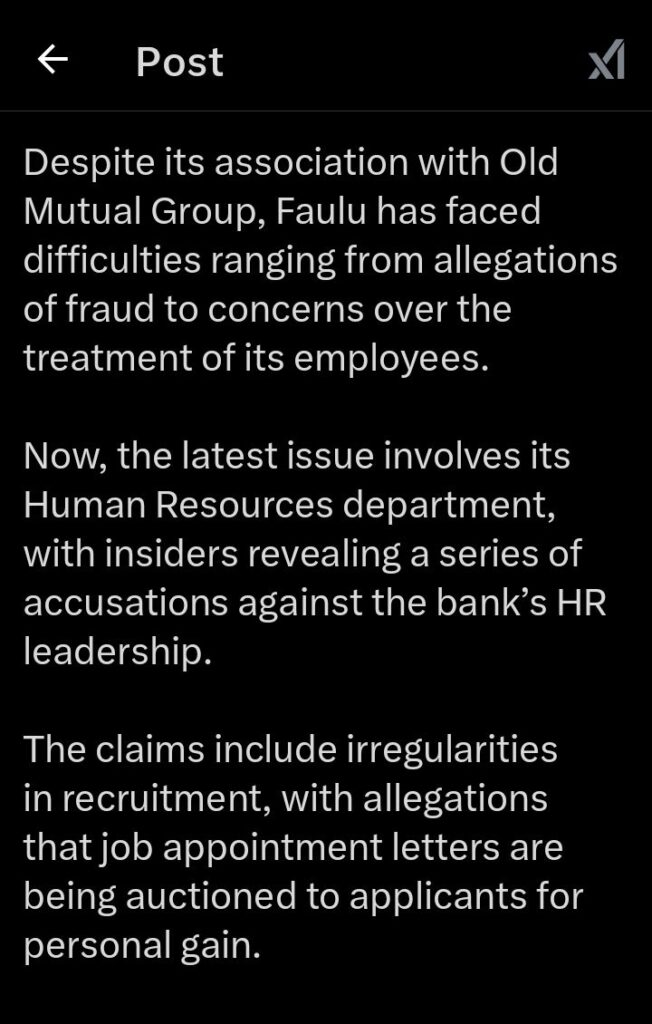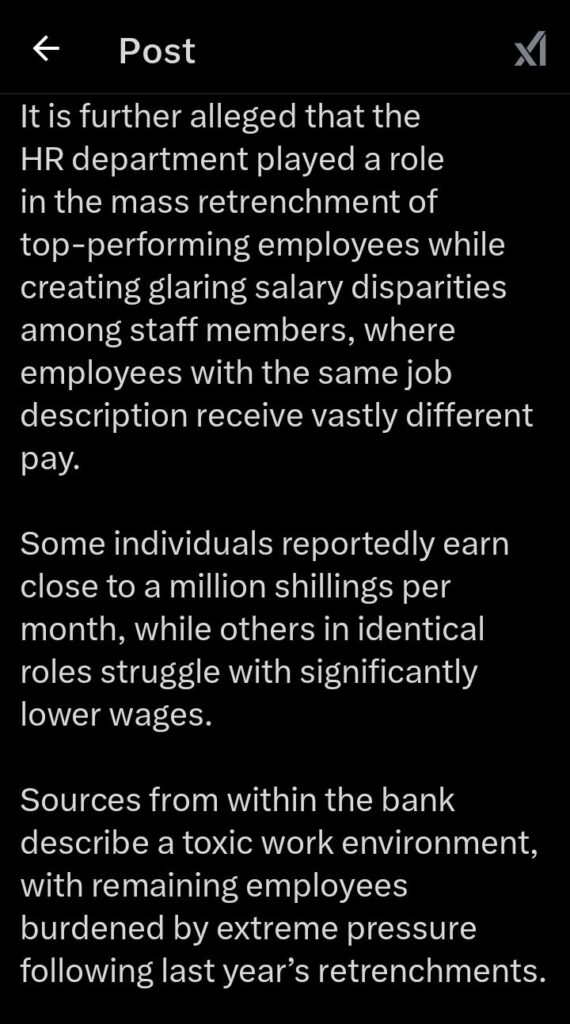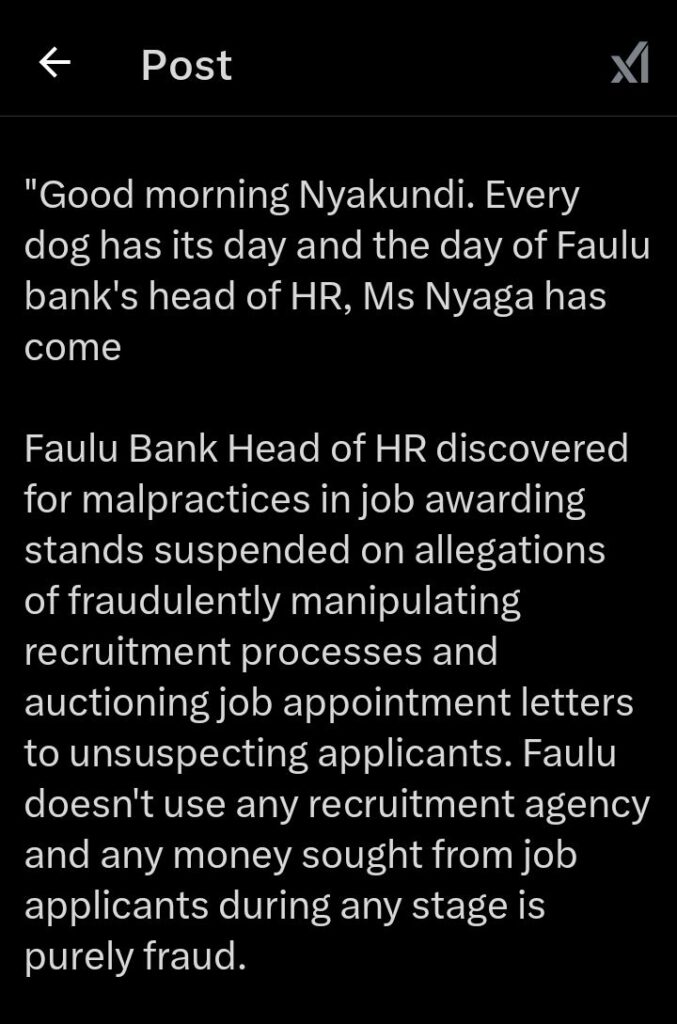Faulu Microfinance Bank is once again in the spotlight for all the wrong reasons, as fresh allegations of corruption and job manipulation rock the institution. The bank, which has faced numerous scandals over the years, is now being accused of running a job auctioning scheme within its Human Resources department.
Sources from inside the bank claim that appointment letters for job seekers are being sold to the highest bidders, exposing a culture of corruption that has taken deep root in the organization.

The allegations primarily focus on the bank’s Head of Human Resources, Ms. Nyaga, who is said to have overseen a system of fraudulent hiring practices.
Reports indicate that she has been suspended following multiple accusations of corruption, including manipulating the recruitment process for personal gain.
Insiders claim that Faulu does not use recruitment agencies, meaning that any money demanded from job seekers during the hiring process is outright fraud.

This has raised serious ethical concerns about how the bank operates, particularly when it comes to staff management and hiring.
Beyond job auctions, Faulu is also accused of implementing unfair salary structures, where employees with the same job descriptions are earning vastly different amounts. Some staff members reportedly earn as little as KSh 150,000 while others in identical positions take home KSh 400,000 or more.

A few individuals are even said to be making close to a million shillings per month, despite having no exceptional qualifications to justify such earnings. The disparity has created a toxic work environment, where employees feel undervalued and overworked.
Those who survived last year’s mass retrenchments are now carrying heavier workloads, leading to frustration and dissatisfaction among staff.
The bank’s retrenchment exercise last year was another controversial move that saw many top-performing employees being dismissed.

Critics believe this was done to clear the way for a new group of hires who could be controlled under the corrupt hiring system. Employees who have been with the bank for years claim that the institution has lost its original vision, focusing solely on profits while disregarding the welfare of its staff.
A particularly shocking revelation is the claim that Ms. Nyaga played a role in scrapping internal prayer devotions, which were once an important part of the bank’s culture.
Faulu was originally founded on Christian principles, and the removal of these devotions has been seen as a sign of the bank abandoning its core values.
Some believe that this change reflects a broader shift in the bank’s leadership, where ethical considerations have taken a backseat to personal gain.
The controversy has not gone unnoticed by the bank’s parent company, Old Mutual Group, which is reportedly considering whether to continue its association with Faulu.
With repeated scandals and financial struggles, there are concerns that Faulu’s instability could tarnish Old Mutual’s reputation.
If the allegations are proven true, it could spell major trouble for the microfinance bank, further deepening the crisis it is already facing.

For now, employees and former staff members are watching closely to see how the bank handles these accusations.
Many believe that Faulu’s leadership must take responsibility for the mess and implement serious reforms to restore confidence in the institution. However, with such deep-rooted corruption within the system, fixing the damage may not be an easy task.
The scandal has once again raised questions about the governance of microfinance banks in Kenya and whether regulators are doing enough to protect employees and job seekers from exploitation.





















Add Comment